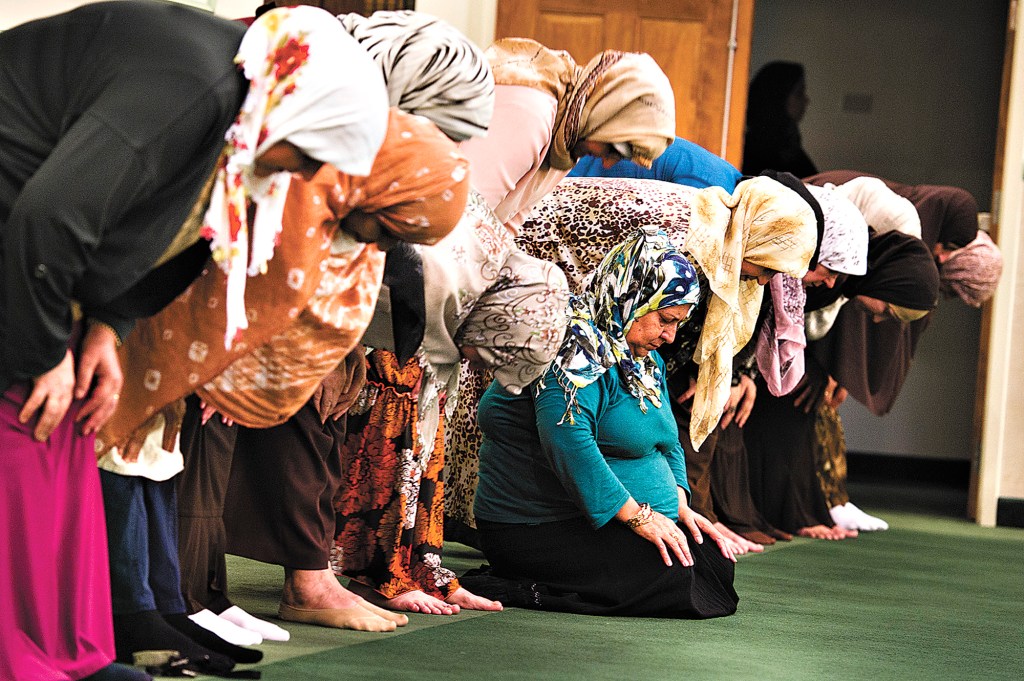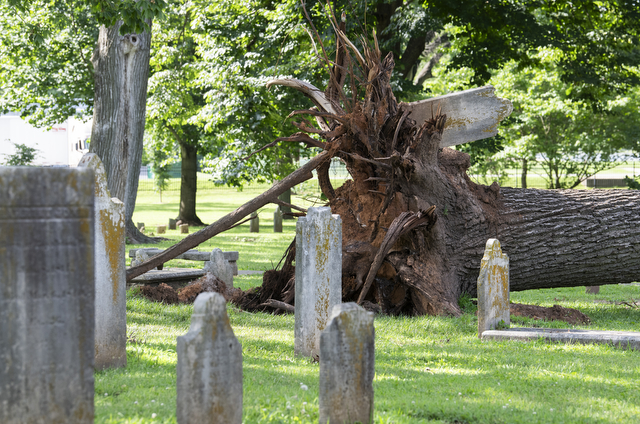FAITHS READY TO USHER IN NEW YEAR 2012
Published 10:52 am Friday, December 30, 2011

- Members of the Islamic Center of Bowling Green pray Monday after breaking their fast during Ramadan on Aug 8 2011
For about 6,000 Bowling Green residents, the new year is already here. And it’s not 2012 – instead, it’s year 1433.
For a handful of other residents, their new year was in September and they celebrated with horns, dancing and honey.
As many get ready to party Saturday night, the New Year’s holiday carries different meanings for different religions. For many religious people, the new year is more than big parties and kisses at midnight – it’s one of the most important and holiest days of their year.
Jews
Jews celebrate the new year during Rosh Hashana, which fell this year in late September. It’s a time for Jews to evaluate their lives – and their sins – over the past year and to plan to live a better life in the new year.
“It’s really a civil new year,” said Jonathan Sacks, congregational leader of Hope in Messiah, a Messianic Jewish group in Bowling Green. “For traditional Jewish people … if you see a Jewish calendar, it will start with Rosh Hashana.”
A handful of Jews reside in Bowling Green and, while they use the Jewish calendar to mark religious events, most abide by the regular Western calendar that begins each year on Jan. 1, Sacks said.
Growing up in a traditional Jewish family, Sacks had years of Jewish education; he had a bar mitzvah and was kosher. While his family took part in Rosh Hashana, they also celebrated New Year’s on Jan. 1.
“We used to stay up and watch Times Square. My parents even had New Year’s Eve parties. I remember as a kid having to put the adults’ coats away,” Sacks said. “I think generally American Jews have no problem with it.”
In fact, many Jews probably don’t know, or have forgotten, that technically there are four Jewish new years, Sacks said. Much like Western gentiles – who have a new school year, a new fiscal year, etc. – Jews traditionally have a new year for different events.
For example, the biblical new year is called Nissan, and it’s used by some Jewish people to calculate the days of festivals, such as Passover. In ancient times, the reign of kings was calculated beginning at Nissan, Sacks said.
Another new year, called Elul, is probably extinct in most places, but it was once widely observed. It’s the Jewish new year for tithing; centuries ago, Jews gave cattle to their priests during Elul. The fourth new year, called Tu B’Shevat, was used to determine the age of trees because Jews were forbidden from eating the fruit of trees that were less than three years old, Sacks said.
Many Jews no longer celebrate Tu B’Shevat, although Sacks’ mother would mention it and his brother, now a rabbi, observes it, he said.
Muslims
Like Jews, Muslims have their own new year, but many still celebrate New Year’s Day on Jan. 1, according to Imam Sedin Agic of the Islamic Center of Bowling Green.
“I’m originally from Bosnia and, in the communist system, everybody celebrated this year (on Jan. 1),” Agic said. “Here, people will also celebrate this year.”
Still, Bowling Green Muslims celebrated another new year on Nov. 26 – the Islamic new year of 1433. Their calendar year is determined by lunar cycles, and new year’s day also marks the Prophet Muhammad’s migration from Mecca to Medina, Agic said.
“This migration has a special significance in the history of Islam,” Agic said. “It’s very, very important to us.”
Called hijrah, the Islamic new year is not as big as the holy month of Ramadan. But it’s important because Muslims begin calculating the days of the new year, so they can estimate when important events, such as Ramadan, will fall, Agic said.
“The new year is not that much significant for us as the events that happen in the year,” he said. “The new year is just a reminder of what happened to the prophet and his companions.”
There’s an estimated 6,000 Muslims in the area, and several attended a ceremony for the new year on Nov. 26. They prayed and listened to a lecture that’s meant to remind people of the sacrifice of the first generation of Muslims, Agic said.
“We try to learn, and every year we try to be better than we were before,” he said. “This year, I hope that I try to be better and open my mind.”
Protestants
Similarly, many Christians commemorate New Year’s by resolving to live better. For many, that means trying to follow God’s word more closely.
Several churches, mainly Protestant ones, have watch night services on New Year’s Eve. For most, it’s a time to fellowship, worship God and enter the new year in prayer.
Grace Baptist Church, for example, will hold a watch night service from 6 p.m. to 9 p.m. Saturday. Most people attend the service to give thanks for the past year and seek guidance for the coming year, said Brian Carson, assistant pastor at Grace Baptist.
“It is just a way in which we’ll have preaching and prayer time and singing, of course,” he said. “It’s just to thank the Lord for the year that he gave us and looking forward to worshipping him and serving him in the year to come.”
Unitarian Universalist
People attending the Unitarian Universalist Church in Bowling Green will begin 2012 with fire.
The church starts the year with a ceremony dubbed the Burning of Grudges and Grievances. People are encouraged to write down something they want to rid from their lives in the new year. The papers are collected in a burning bowl and then torched, the Rev. Peter Connolly said.
“But I caution people that they shouldn’t let go of things they’re not ready to let go of,” he said.
During the ceremony, Connolly tells a story relating to that topic. This year, he will speak about Nelson Mandela and how the South African leader forgave those who imprisoned him.
And some people opt to have their papers read aloud. Sometimes, their resolutions are funny, while others are serious. It makes for an entertaining and touching New Year’s service, Connolly said.
“The idea is with a new year coming, there are burdens of unforgiveness that we might want to leave behind,” he said, “things that are weighing us down and are not very productive to carry forward into the new year.”






